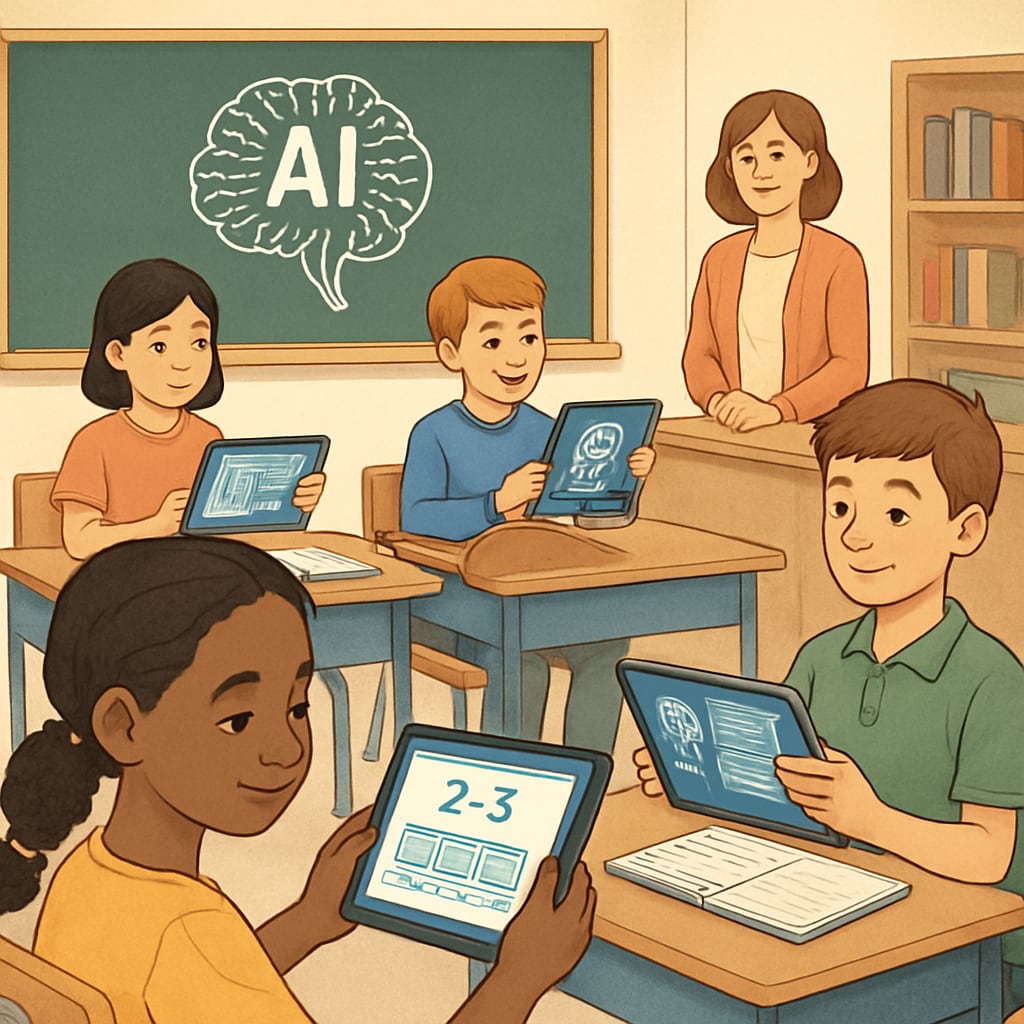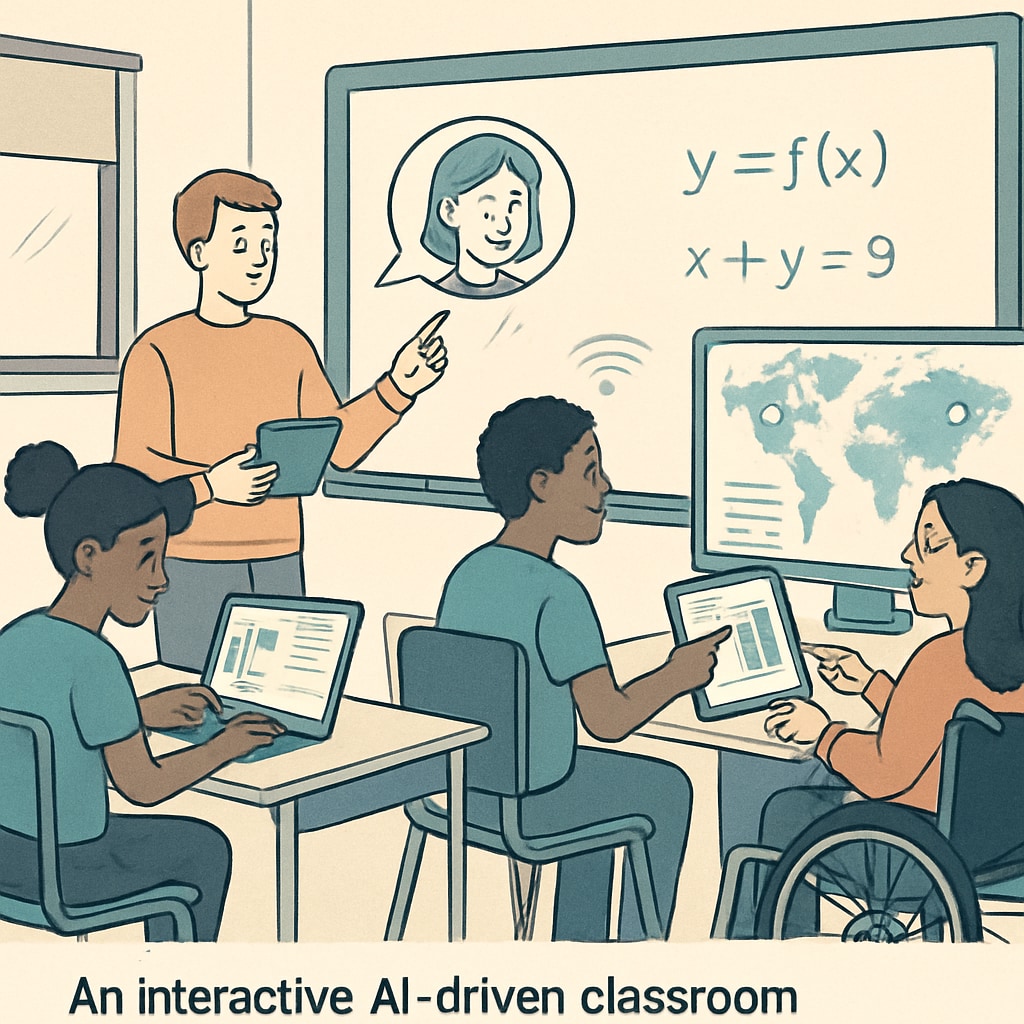Artificial intelligence education is revolutionizing how learning occurs in K12 classrooms, blending cutting-edge technology with the traditional teaching experience. From personalized learning plans to intelligent assessments, AI is making education more adaptive, engaging, and efficient. As we look toward 2030, the integration of AI into education systems promises transformative impacts for students, educators, and institutions alike. This article delves into current trends and explores the future prospects of AI-driven education, shaping the next decade of learning.
The Role of AI in Modern K12 Education
Artificial intelligence has already begun to redefine the K12 education landscape. By leveraging machine learning algorithms and data analytics, AI tools can evaluate individual student performance, identify gaps in understanding, and tailor learning experiences to meet each student’s unique needs. For example, platforms like adaptive learning systems can adjust the pace and difficulty of content based on the learner’s progress.
In addition, AI is enhancing classroom management through tools like automated grading systems. These systems save educators time and provide detailed insights into student achievements, enabling more targeted teaching strategies. As a result, both students and teachers benefit from a more streamlined and focused approach to education.

Key Trends in AI-Driven Education Toward 2030
Several trends are shaping the future of AI in K12 education:
- Personalized Learning: AI tools like intelligent tutors and chatbots will continue to provide individualized support, helping students learn at their own pace.
- Smart Assessments: AI-powered assessments will offer instant feedback and track student progress, promoting continuous learning.
- Equity and Accessibility: AI can bridge learning gaps by providing resources to underserved communities, ensuring equal opportunities for all.
- Teacher Augmentation: AI will assist educators by automating repetitive tasks, allowing them to focus more on creative and interpersonal aspects of teaching.
As a result, AI is not just improving efficiency but also fostering a more inclusive and engaging learning environment.

The Future of AI in Education: Opportunities and Challenges
By 2030, the widespread adoption of AI in K12 education will bring both opportunities and challenges. On one hand, AI has the potential to democratize education by providing tailored resources to students regardless of their socioeconomic status. It can also empower teachers with advanced tools to enhance lesson planning, track student performance, and facilitate collaborative learning.
However, ethical considerations and data privacy remain critical challenges. Ensuring that AI systems are transparent and protect sensitive student data will be essential for gaining trust and avoiding misuse. Additionally, educators must adapt to this technological shift, requiring professional development and training to effectively integrate AI into their teaching practices.
Organizations and governments must work together to create policies that support innovation while addressing these concerns. By doing so, the promise of AI-driven education can be fully realized by 2030.
Artificial intelligence education is reshaping classrooms and redefining the future of learning with personalized experiences, intelligent assessments, and adaptive methods. While challenges exist, the opportunities are immense. With thoughtful implementation, AI can transform K12 education into a dynamic and equitable space for learners and educators alike.
Readability guidance: This article emphasizes concise paragraphs and lists to enhance understanding. Overuse of technical jargon is avoided, while transitions such as “in addition” and “for example” ensure smooth flow. Passive voice is minimized, and the focus remains on actionable insights.


